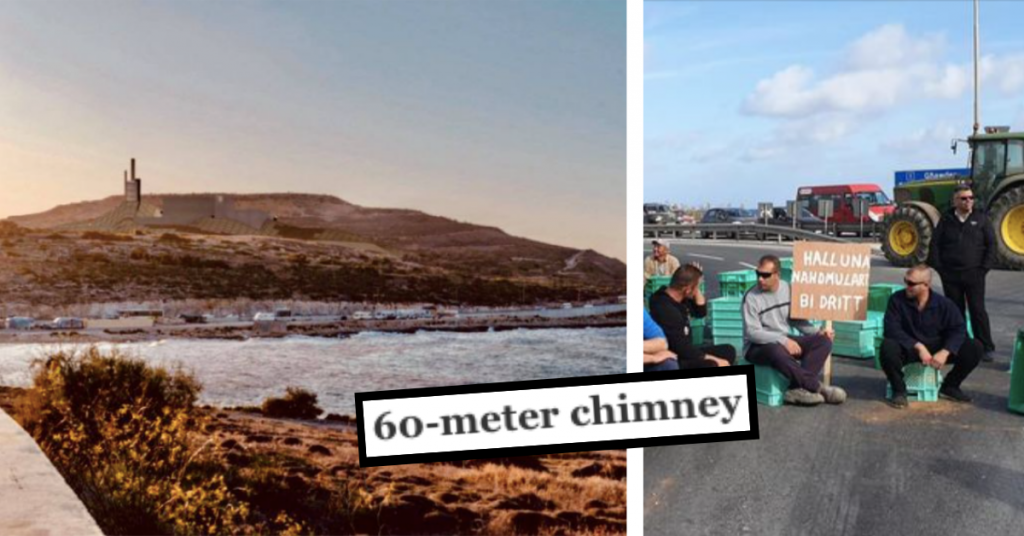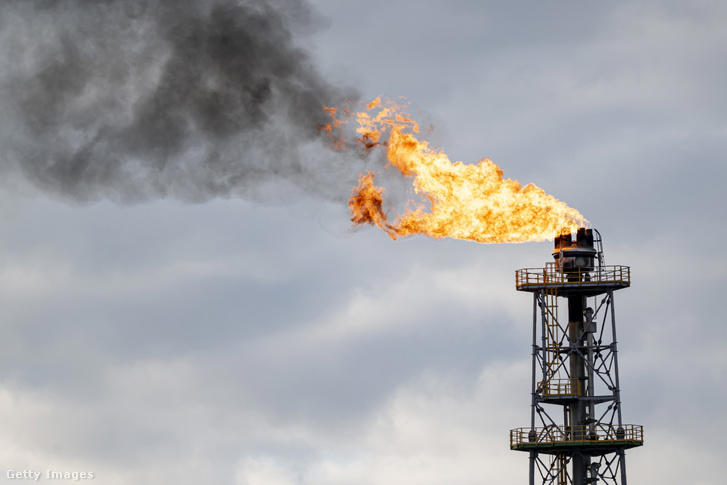
Residents from Maghtab, St Paul’s Bay, Naxxar and other localities strongly opposed plans to construct a thermal treatment facility in Maghtab, during a public consultation meeting held on Wednesday afternoon.
The meeting was hosted by the Environment and Resources Authority (ERA).
This is a separate project to the Waste-to-Energy plant, and will deal with hazardous waste incineration.
The public consultation meeting dealt with the proposal to build an incinerator to support the country’s waste management. The scope of the meeting was to publish the findings from the project’s Environmental Impact Assessment (EIA) and listen to public feedback.
This site is set to take up 18,185sqm of land. The decision to take up this project – planning application PA/06096/23 – will be taken at a later date.
Officials noted that, despite that the development of this land will force the loss or transportation of some 50 protected trees, the loss of rural land will be relatively minimal – the poor quality of soil in the affected area means that the land is presently of low agricultural value.
The EIA concluded that the development of the incinerator supports Malta’s long-term waste management plan (2021-2030), and that the proposed thermal treatment facility will have “negligible” adverse impacts on air quality and noise pollution. However, members of the public adamantly disagreed that the project is as positive as the EIA concluded.
This proposal’s EIA Coordinator stated that this project supports Malta’s plan to bolster its waste management infrastructure amidst the country’s increasing population, and will also help Malta reach EU waste management targets.
Citizens present for this meeting made it clear that they are all adamantly against the construction of this project. Speakers were in a general consensus that whilst the location of this facility seems problematic for families living in its vicinity and nearby localities, strong winds could make this incinerator a common frustration for people all across Malta.
Several citizens spoke out that Malta should not consider the construction of an incinerator altogether, and that if authorities choose to proceed with this project, the population will suffer negative health-related ramifications over the coming decades.
Those present labelled this project as “an enormous, monstrous complex” and even as a potential “cancer factory.”
Nationalist Party MP Claudette Buttigieg was present during this public consultation meeting and was one of many who criticised the project.
Buttigieg questioned as to why the presented EIA only spoke about the impacts of this single incinerator, rather than all projects intended to be eventually developed within the same area. Others also asked such questions.
“We would like to know the overall cumulative effect [of this complex], not just that of this single project,” Buttigieg stated.
As a Naxxar resident, the PN MP noted that this incinerator will focus on hazardous waste and will be far larger than the one planned by past PN administrations.
She also observed that the government should help residents find an expert to guide them throughout this public consultation process. She implied that this could be done for other large projects gravely concerning residents.
Buttigieg condemned how the 172-page report on this proposed development barely considers residents. She said that residents are only mentioned four times in this entire report vis-à-vis noise pollution and on the project’s social impact.
The MP was also bothered that, to support residents in the incinerator’s vicinity, the project applicant will be in regular contact with residents and local councils to circumvent any concerns. Buttigieg said that resident concerns should be dealt with seriously before they arise, not afterwards.
A major gripe behind this incinerator is its proposed location, with some saying how winds could blow smoke of this burned hazardous waste across the entire country. Some people stated that in the Maltese islands, around 220 days per year see winds blow from the northwest, and that in the presence of such strong winds, the emissions from this facility could be dispersed across Malta.
Resultantly, several residents suggested for this incinerator to be set up offshore.
Several residents believe that Maltese authorities are “outdated” if they persist on with this development. Another said that incinerating waste is “much more polluting than burning coal.”
It was said that countries all across Europe are closing down their incinerators or banning them altogether, since they are not as great as people used to think just a decade ago.
One outspoken resident stated that the EU will not provide Malta any form of subsidy, following its recommendation, if it proceeds with this development.
WasteServ CEO Richard Bilocca was present for this public consultation meeting and informed residents that millions of euros are being invested into Eco Hive so that Malta can move away from its reliance on landfills.
He acknowledged speakers’ concerns that “incineration is one of the worst ways to discard waste” though interjected that this statement, which was made by a number of persons present, depends on the type of waste burned. Here, he said that organic waste will not be incinerated in this plant.
This planning application, if approved, will incorporate two independent lines, with the possibility of a third, each with a rotary kiln incinerator. These will burn hazardous waste, such as fallen animals, expired foods, abattoir and butcher shop waste, clinical waste, and manufacturing and industrial waste.
One particular resident, who was said to have 25 years of experience in quality control, said that many of the most perilous pollutants to come out of waste incineration emerge into the air as nanoparticles or ultra fine particles (particles less than one nanometre large). He commented that there are no measurements or accepted emissions for releasing such particles in the air, anywhere in the world, implying that the construction of an incinerator will have immeasurable adverse effects on local air quality that could make their way into local food chains, leading to future health issues.
Citing an American professor who wrote about incinerators’ effect on air quality, this resident stated that “currently, there are no specific quality standards or stark emission limits that specifically target this problem.”
Naxxar’s deputy mayor, Joseph Spiteri, said that Naxxar residents are pre-occupied with all sorts of concerns relating to this individual incinerator, as well as the complex.
“Residents are pre-occupied by these questions and have no answers for them; especially on if there are studies on all plans together. You have a monster there, I don’t understand how one can say there won’t be much of an impact,” Naxxar Deputy Mayor Spiteri said.
He also brought up that WasteServ struggles to keep its roads in Magħtab clean, despite residential complaints. On this point, he remarked that with the governmental entity struggling to uphold this basic duty, residents are naturally greatly concerned about this potential project and all its envisioned issues.
Astrid Vella, Coordinator of Flimkien Għal Ambjent Aħjar (FAA), shared similar concerns.
“In this country, where we aren’t even capable of ensuring that clocks on a bus stop are working, can you blame us for having concerns that all checks and balances will be carried out in the future, to the highest standards?” she asked.
After it was noted that Denmark are planning to close a number of incinerators across its country, Vella questioned if Maltese believe we are better managers than the Danes, considering that one reasons behind why Denmark is closing down these facilities is through its sustained difficulties to operate them while abiding by ever-demanding standards.
Citizens can send their feedback on this proposed development to the ERA via e-mail to [email protected]. The window to send such comments will remain open until 30 April 2025.












